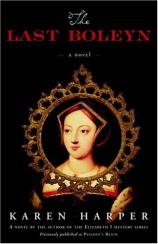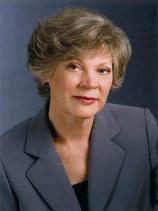Reading Group Guide
Discussion Questions
The Last Boleyn: A Novel

1. Throughout The Last Boleyn, the image of life in court as a game of chess is discussed. What does the chess game mean to Mary Bullen, and how does the way she plays the game differ from those around her? Who at court is the wisest player, and who wields the most power over time?
2. When Mary leaves the French court to return to England, what lessons does she take with her? Who has she met that has had the greatest impact (either in a positive or negative way) on her as she has grown? What experiences in her adolescence in France most shape the woman she becomes?
3. In the world of this novel, a great deal of one's status is determined by family --- both William Stafford and William Carey for example are in positions where their limited social standing is directly linked to the rebellion of previous generations, and much is made of the "Howard blood" in Mary Bullen's lineage. To what extent do you see the roles of the characters as fixed, and where do we see someone making their own place in the world? Can a person ever truly escape the sins of their fathers in Tudor England? How far can the ambitious self-made man or woman carry themselves?
4. Of all the Queens of both France and England we see, which one do you like the most? Who is the shrewdest player of her precarious part? Who is the bravest in asserting herself? In what way do the actions of one have repercussions on those that come after her? How do you see the future Queen Jane Seymour's role?
5. Discuss the relationships Thomas Bullen has with his children. In what ways do they each rebel and in what ways are they influenced by the way he treats them? Why is it that they each react somewhat differently to their place in the world and in his life? In what ways do their relationships with him play out in their relationships with each other?
6. Why do you think Lady Elizabeth was once able to stand up to Lord Bullen when he tried to force her to become the king's mistress, but could never do the same on behalf of her children? How do you see the power structure in the Bullen household, and how does it compare to the power structure in the outside world?
7. Discuss the character of Anne. What do you think of the woman she grew up to be? Do her actions at the end of her life redeem her for the way she treated Mary and others previously? Where do we see her most blatant play for power within the family, and could you, as a reader, ultimately forgive her behavior?
8. On page 534, Mary tells Staff of the nightmares that have been haunting her since Sir Thomas More's execution. Why do you think the story of Meg Roper affects her as deeply as it does? What in this tale strikes such a deep chord within Mary that she can't get the image out of her mind and even feels the need to reach out to the girl?
9. Why do you think Anne changes the family's name from Bullen to Boleyn? Is this a cosmetic change she makes at a whim, or is she making a larger statement to the world and/or the rest of her family?
10. At what point, if ever, do we really see Mary assert her independence? What enables her to stand up for what she really wants and stay firm in her convictions and her choices? From where does she draw her strength?
11. What role does love, both romantic and familial, play in The Last Boleyn? Where do you see love felt and expressed between these characters?
12. So much in this novel happens at the whim of a King, but what of the Kings themselves? What do you think motivates the male monarchs in this story? Why do they behave the way that they do, and what are your feelings about Francois and Henry in particular? Are they sympathetic characters in any way? What are they looking to achieve in their lives?
13. Interspersed throughout the novel are Tudor sonnets or songs that the author tells us in the Afterward she is using "to help establish the mood, emotions, and themes of the story" with the very words that Mary herself might have known. What do you make of this literary device? What, if anything, did it add to your reading experience?
14. After Mary's son, Henry Carey, who became the 1st Lord of Hunsdon under Elizabeth I (Anne's daughter), put down the Catholic Dacre rebellion in 1570, Elizabeth sent him a letter that read in part, "I doubt much, my Harry, whether that the victory were given me, more joyed me, or that you were by God appointed the instrument of my glory; and I assure you that for my country's good, the first must suffice, but for my heart's contention the second pleased me...you have done much for honour...Your loving kinswoman, Elizabeth R." What do you think Mary would have made of this correspondence between her niece and her son? What do you think of it, knowing the history that created them both?
15. From what you've seen of Tudor England in this novel, are there any similarities that you can draw to modern society? Much has changed, but what driving forces, societal pressures, or political pitfalls that Mary had to navigate seem most familiar to you? Can you think of any contemporary families that remind you of the Boleyns? What in Mary's story is timeless and resonates most with you as a modern reader?
The Last Boleyn: A Novel
- Publication Date: February 28, 2006
- Paperback: 592 pages
- Publisher: Three Rivers Press
- ISBN-10: 0307237907
- ISBN-13: 9780307237903








